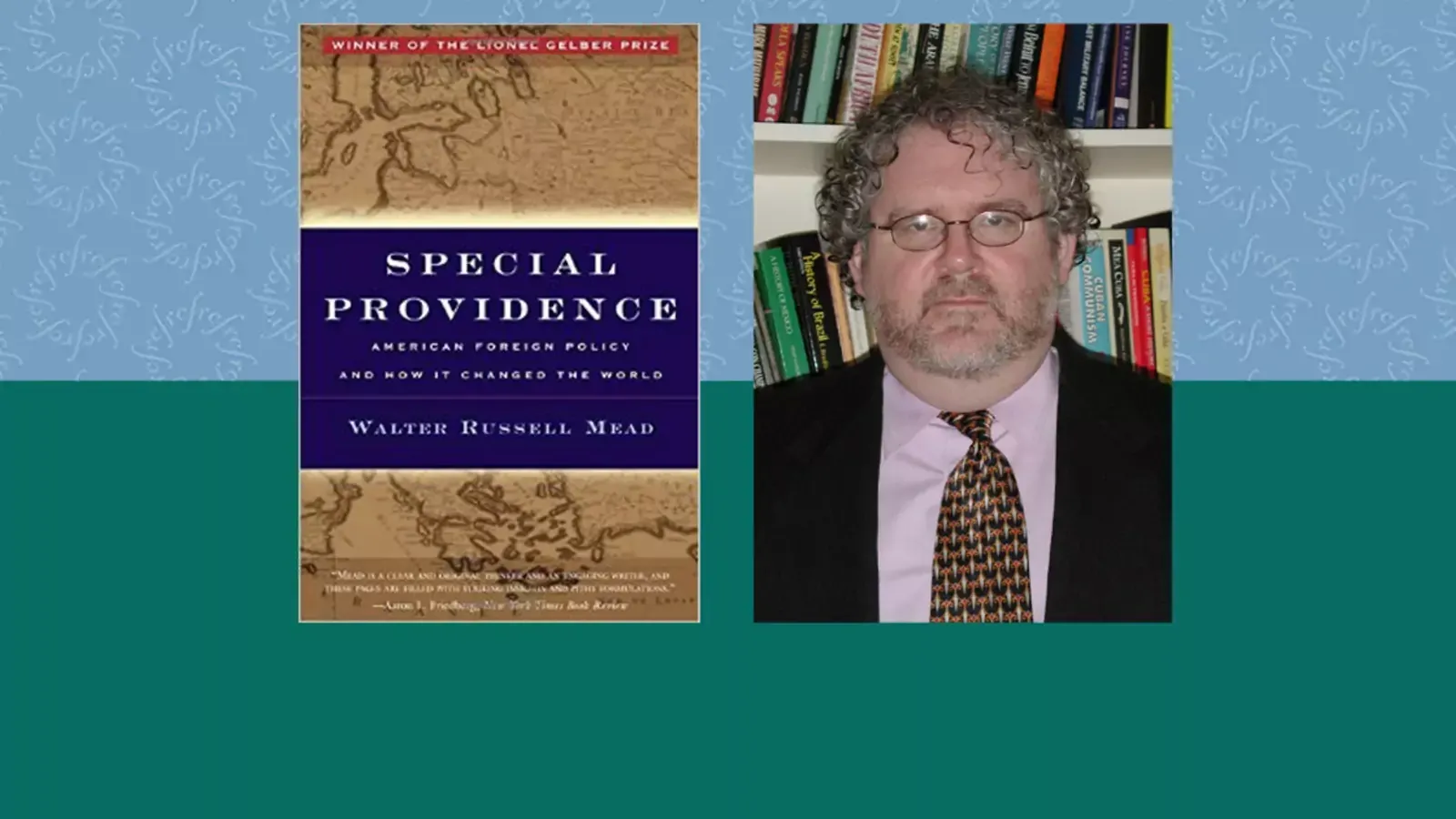Special Providence

Introduction
In this book, CFR Senior Fellow Walter Russell Mead argues that the United States has had a more successful foreign policy than any other great power in history, and attributes this unprecedented success (as well as recurring problems) to a vigorous interplay among four powerful political traditions that have shaped foreign policy since the Revolution. Teaching notes by the author.
Summary
Special Providence offers an insightful and unique framework for understanding America's role in the world. This book is equally appropriate for general courses on American foreign policy, advanced courses on the crafting of American foreign policy, and survey courses on American diplomatic history.
Special Providence will provide undergraduates in introductory courses with a typology of American approaches to foreign affairs that is deeply rooted in U.S. history. The four worldviews described in Special Providence will enable these students to better understand the present and envision the future of American foreign policy.
Advanced students in upper-division courses will be able to grapple with the ideological underpinnings that inform America's encounter with the world. Special Providence will also illuminate how America's historical experience continues to influence the course of its relations with the world.
Essay and Discussion Questions
General Courses in American Foreign Policy
Discussion Questions
- Mead laments a general amnesia about early American diplomatic history. Why have Americans—specialists and laymen alike—tended to ignore American foreign policy before World War II? What is to be gained from the study of this neglected era of America's foreign relations?
- Identify recurring criticisms of American foreign policy. Which accusation do you consider the most cogent? Which charge do you believe is the least convincing?
- Mead suggests the notion that America's engagement with the world oscillates between poles of righteous isolationism and overzealous crusading is fundamentally flawed. Instead, he argues, America's foreign relations have always been central to the course of the nation's history. Give examples of the prominence of foreign policy in pre-World War II America.
- What are the defining features of the four "schools" of American foreign policy? Provide your own examples of figures that exemplify each of the respective worldviews.
- How does the Hamiltonian approach mirror Continental Realism? How do the two traditions differ?
- How does the Jeffersonian reading of American history inform their approach to foreign policy?
- Why do observers of American foreign affairs so often heap scorn on the Wilsonian strand of American foreign policy? Evaluate common criticisms.
- Identify manifestations of Jacksonianism in the Bush administration's policy. Has the Jacksonian aversion to "limited wars" influenced the Bush administration's forward-leaning, expansive view of the War on Terror?
- Will the Democratic party be able to repair its estrangement from Jacksonian America? Can they win the Presidency without doing so?
Advanced Courses in American Foreign Policy
Discussion Questions
- How has the post-9/11 American political landscape influenced the four schools of foreign policy? Has a particular strand been reinforced by 9/11 and the War on Terror? Weakened? Have the events of September 11th and the ensuing War on Terrror given birth to a new, distinctive school of American foreign policy, or a hybrid of the four existing schools?
- How has economic interdependence shaped America's foreign policy?
- What distinguishes President Bush's efforts to remake the world in America's image from traditional Wilsonianism?
- How does America's decentralized, often untidy foreign policy decision-making process influence the formation and shape of American foreign policy?
- Historically, how have Americans, acting independent of the United States government, influence America's encounter with the world? How do these non-governmental actors affect American foreign policy today?
- Which schools of American foreign policy has the Bush administration drawn on? What approaches has it neglected? What would be the ideal balance of these four approaches for the Bush administration to now employ?
- Assign a particular school of foreign policy to the principal policymakers in both of President Bush's administrations. How has this mixture of worldviews impacted the president's foreign policy?
- Mead argues that a lack of consensus about America's role in the world can result in either political paralysis, or the unchecked proliferation of policies. Suggest tenets of an overarching American strategy that advocates for each of the four schools could endorse.
- The American foreign policy establishment—on the left and right—has struggled to both understand and engage Jacksonian America. Why? How has this disconnect affected the formation of American foreign policy? Mead argues that this breach is growing wider. Do you agree with this observation?